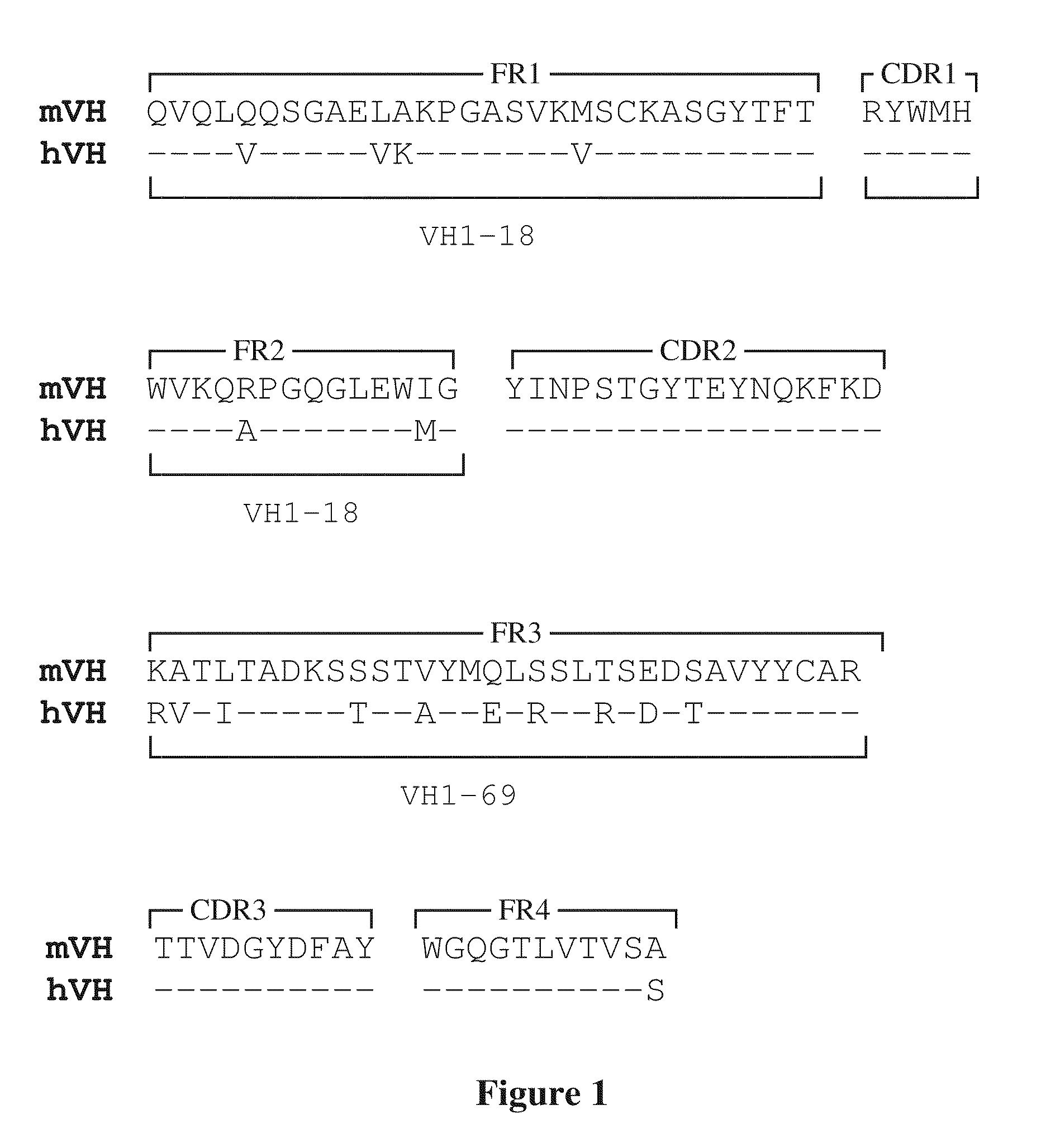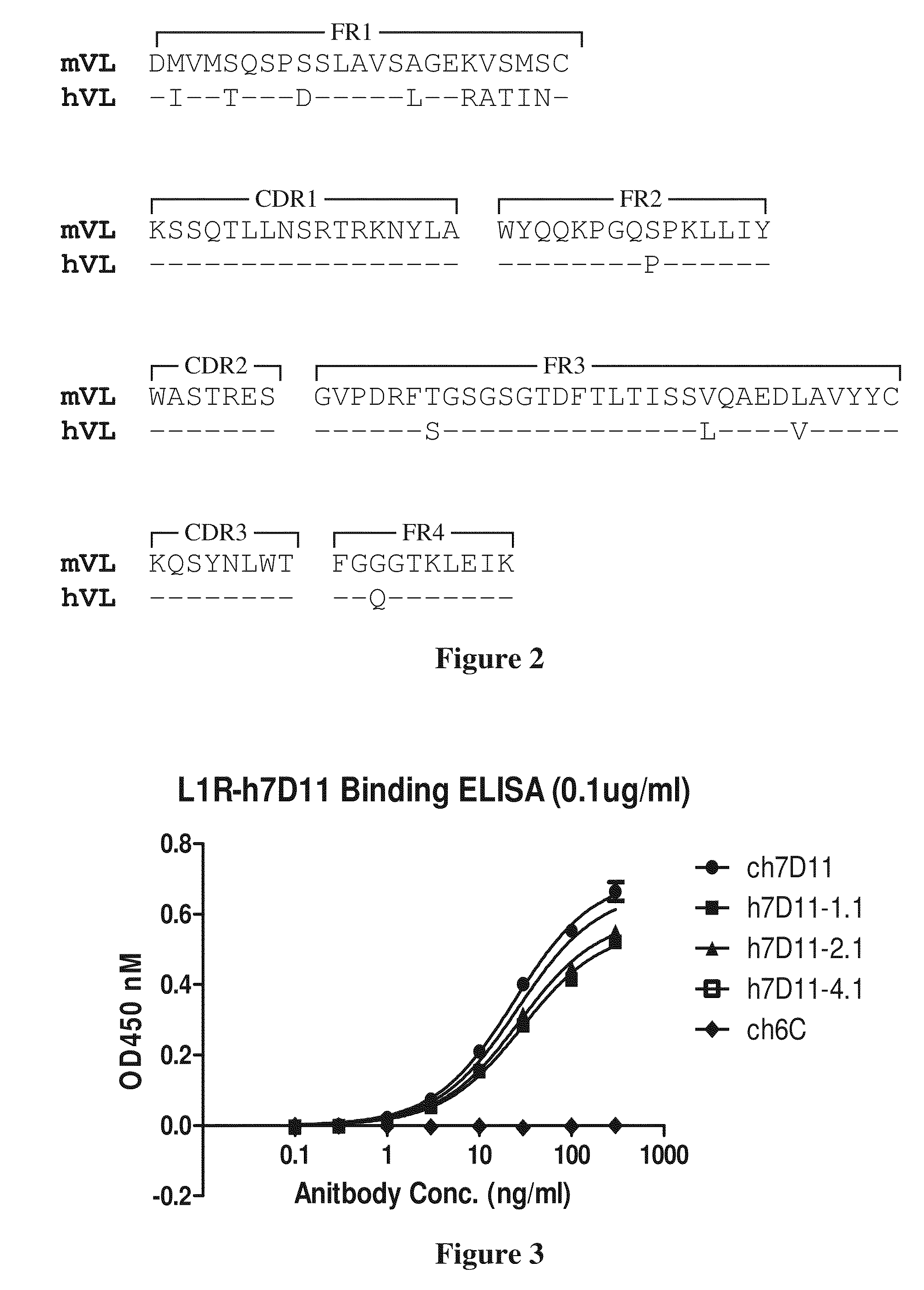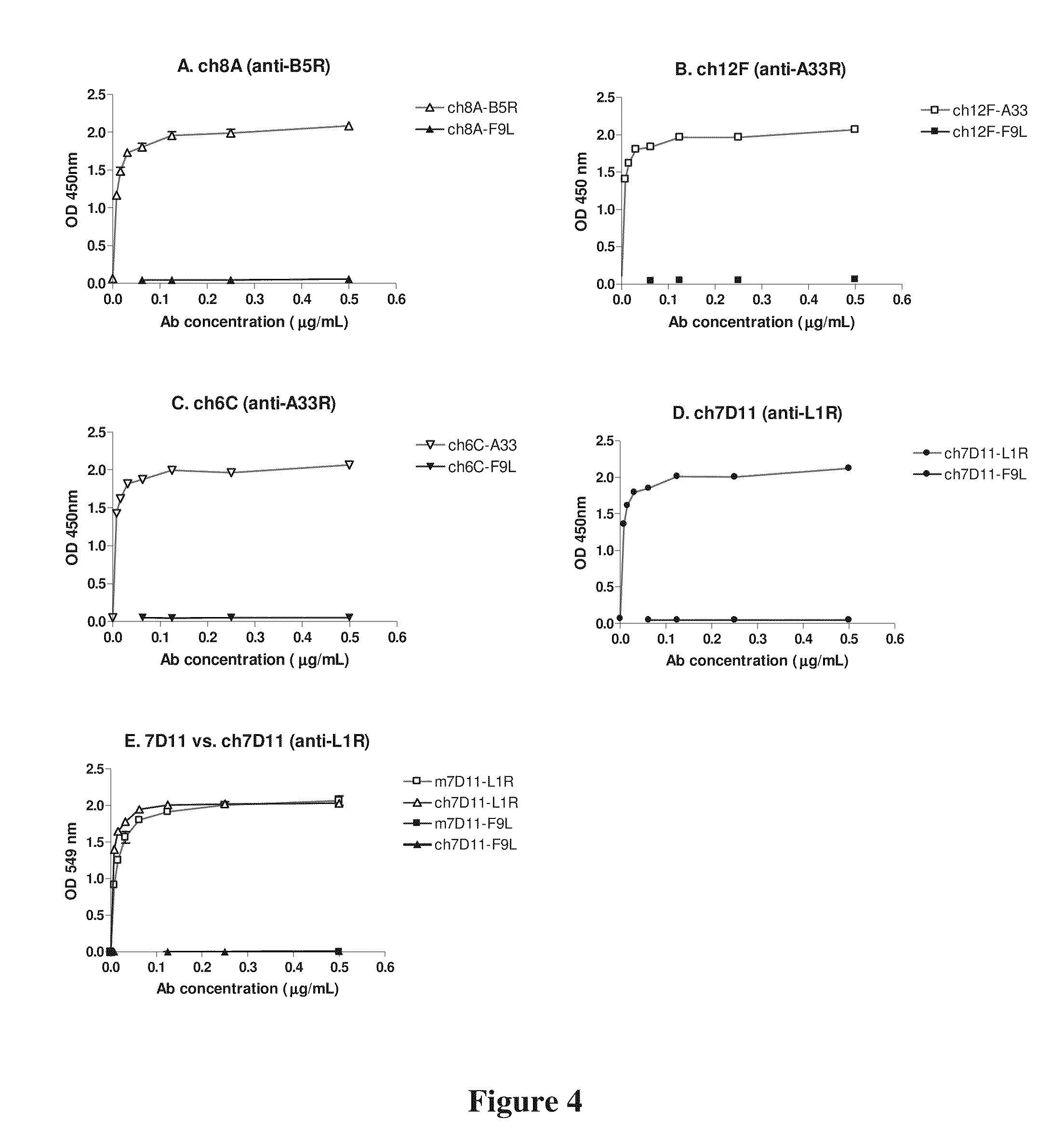Compositions for the prevention and treatment of smallpox
a technology for smallpox and compositions, applied in the field of compositions for the prevention and treatment of smallpox, can solve the problems of complicated life cycle of poxviruses, more complicated than the smallest bacteria, disseminated intravascular coagulation, hypotension and cardiovascular collaps
- Summary
- Abstract
- Description
- Claims
- Application Information
AI Technical Summary
Benefits of technology
Problems solved by technology
Method used
Image
Examples
example 1
Isolation and Properties of Vaccinia Virus Neutralizing mAbs
[0158]Anti-EV mAbs:
[0159]Chimeric chimpanzee / human mAbs that neutralize the EV form of vaccinia virus were isolated and characterized by Drs. Zhaochun Chen and Robert Purcell at the Laboratory of Infectious Diseases / NIAID / NIH in collaboration with Drs. Patricia Earl and Bernard Moss at the Laboratory of Viral Diseases / NIAID / NIH. Chimpanzee Fab fragments were selected from a library derived from the bone marrow of two chimpanzees that had been vaccinated with live vaccinia virus. The chimpanzee Fab sequences were combined with human γ1 constant region sequences to produce full length chimeric antibodies.
[0160]Binding Properties of Anti-EV mAbs:
[0161]Ch8AH8AL and Ch12F bind with high affinity (4-6×10−10M), whereas CH6C binds with moderate affinity (2×10−8M). All three mAbs are highly potent in neutralizing the EV form of vaccinia virus in vitro (measured by the comet reduction assay). Two of the mAbs, Ch8AH8AL and Ch6C, have ...
example 2
Synergy of Mixtures of Anti-EV and Anti-MV mAbs
[0173]Evidence supports the possibility that a mixture of EV-specific and MV-specific mAbs would be synergistically more effective at neutralizing vaccinia virus relative to single mAbs. Genetic immunization studies have demonstrated the superiority of mixtures of plasmids encoding EV-specific proteins (B5, A33) and MV-specific proteins (A27, L1) in conferring protection in mice from vaccinia virus challenge and protection in monkeys from monkey pox challenge (Hooper, J. W. et al. (2003) “Four-Gene-Combination DNA Vaccine Protects Mice Against A Lethal Vaccinia Virus Challenge And Elicits Appropriate Antibody Responses In Nonhuman Primates,” Virology 306(1):181-195; Hooper, J. W. et al. (2004) “Smallpox DNA Vaccine Protects Nonhuman Primates Against Lethal Monkeypox,” J. Virol. 78(9):4433-4443). Additionally, recombinant protein immunization studies have shown that a mixture of proteins (B5+A33+L1 or A33+L1) provided superior protection...
example 3
Variola Virus Neutralizing Activity
[0175]A comparison of the sequences of variola and vaccinia B5 proteins in the region corresponding to the epitope recognized by 8AL / 8AH reveals 10 amino acid differences (discussed above). A Western blot study showed that 8AL / 8AH cross-reacted with a variola B5 polypeptide corresponding to 111 amino acids, which had been expressed in E. coli. Moreover, in a study performed at the Centers for Disease Control, 8AH / 8AL inhibited variola virus comet formation, an assay that specifically measures EV neutralizing activity. Similarly, 6C inhibited variola virus comet formation. For these studies, monolayers of BS-C-40 cells were infected with the Solaimen strain of variola virus. After 1 h, the medium was aspirated; cells were washed twice, and overlaid with RPMI containing 25 μg, 2.5 μg, or 0 μg of 6C IgG. The plates were then incubated in a CO2 incubator for 4 days at 35.5° C. Cells were fixed and reacted with polyclonal rabbit anti-variola virus antib...
PUM
| Property | Measurement | Unit |
|---|---|---|
| molecular weight | aaaaa | aaaaa |
| temperature | aaaaa | aaaaa |
| volume | aaaaa | aaaaa |
Abstract
Description
Claims
Application Information
 Login to View More
Login to View More - R&D
- Intellectual Property
- Life Sciences
- Materials
- Tech Scout
- Unparalleled Data Quality
- Higher Quality Content
- 60% Fewer Hallucinations
Browse by: Latest US Patents, China's latest patents, Technical Efficacy Thesaurus, Application Domain, Technology Topic, Popular Technical Reports.
© 2025 PatSnap. All rights reserved.Legal|Privacy policy|Modern Slavery Act Transparency Statement|Sitemap|About US| Contact US: help@patsnap.com



